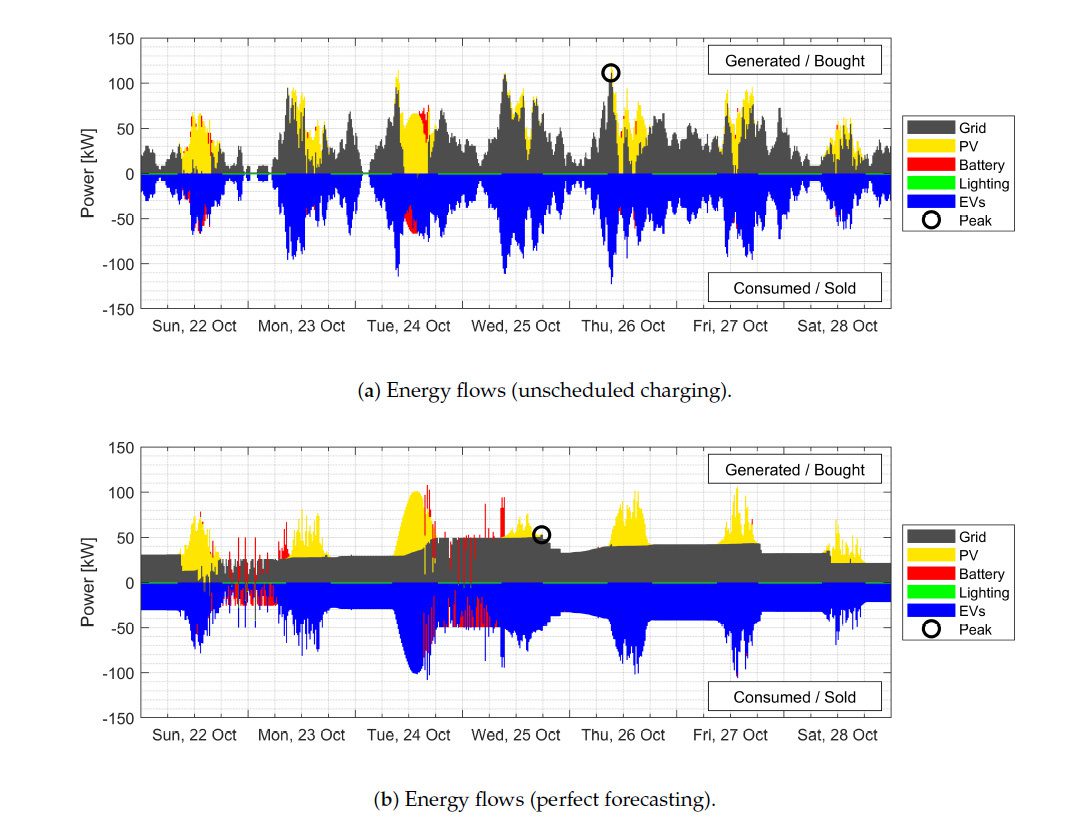Electric driving and the high energy demand
There will be a time when we all be driving electric vehicles (EV’s). But there are still some challenges, one of them is the increase in energy demand at specific times. TU Delft researchers Rishabh Ghotge, Yitzhak Snow, Samira Farahani, Zofia Lukszo and Ad van Wijk recently wrote a paper about the research that they are conducting and their paper got published. The paper is called: how to optimize the scheduling of EV Charging in Solar Parking Lots for Local Peak Reduction under EV Demand Uncertainty.
In other words, is it possible to create a strategy – based on scientific data – for scheduled charging of electronic vehicles in solar parking lots, in order to prevent that the energy demand is higher than the local energy network can deliver? (Solar parking lots are parking lots with solar panels on the roof top.) What could that mean to our day to day life? Rishabh Ghotge, the project manager and TU Delft researcher of PowerParking, explains why this research and the outcome is not only relevant for scientists but for companies and non-scientists as well.
“As soon as we park our electric car, the car starts to charge. Peaks in the electricity demand occur, for example at the end of the day when everyone is heading home and turning on all the devices while charging the car. This imbalance between supply and distribution causes high peaks in energy consumption that lead to overloading of grid infrastructure. In other words, if there is too much demand then the local network gets damaged and a blackout can happen.“
“The Green Village bridges the gap between simulation and the physical world.” – Rishabh Ghotge
Their research involved using available data to optimize the scheduling of vehicle charging to create the lowest possible peak load. Discovering the effects of uncertainty in forecasted data and how that affects the peak load and how to reduce peaks caused by uncertain forecasts was also one of the research topics.
The research work was done by the Technical University Delft and mostly involved simulation and modelling. “Still the availability of a living lab like The Green Village is important, it bridges the gap between simulation and the physical world. After all a living lab is the place where you get to experience the hardware and how it works in real live even though it’s on a small scale. If it works there we can transplant it to the various projects in Flevoland in the near future.” Explains Rishabh.
How to deal with the higher energy consumption?
When we all be driving electric vehicles the energy consumption will increase even further with the possibility that the demand is higher than the local energy network can deliver. Are there simple thing that we can do to decrease the peak in energy demand? Do we need a different mindset? Rishabh explains that there are multiple solutions:
- We could reduce our energy need.
- Energy efficiency. We could work with flexible hours, then the energy usage will vary as well. Car-sharing could be an option, this is a setup where the users reserve vehicles in advance for the trips they plan.
- Replace fossil based power with sustainable energy alternatives like solar and wind energy.
- Smarter equipment: replacing old high energy consuming devices by efficient ones. Technical University Twente did a research amongst consumers. The outcome was that consumers wouldn’t mind having a smart dishwasher or a smart washing machines that will choose it’s washing time based on low energy consumption, as long as the machines would be ready the next morning. The same is true with charging of EV’s. “
Advantages of this new model
Their new model for scheduled charging incorporates the uncertainty in solar forecasting and future energy demand and therefore helps to identify the effects of this uncertainty on peak load. It also gives a better understanding of the limits of effectiveness of such a system in the absence of highly accurate forecasts. Use of this new scheduling strategy helps to reduce the higher peak loads even with uncertainty in forecasting.
Figure a and b: Comparison of energy flows in the solar parking lot with unscheduled charging as opposed to charging with perfect forecasts.
Are you interested in the paper? You can find it here.
Are you interested in conducting your own energy related research project at The Green Village or would you like to receive more information on this project? Please contact Lidewij van Trigt, Project Manager Mobility and Energy







